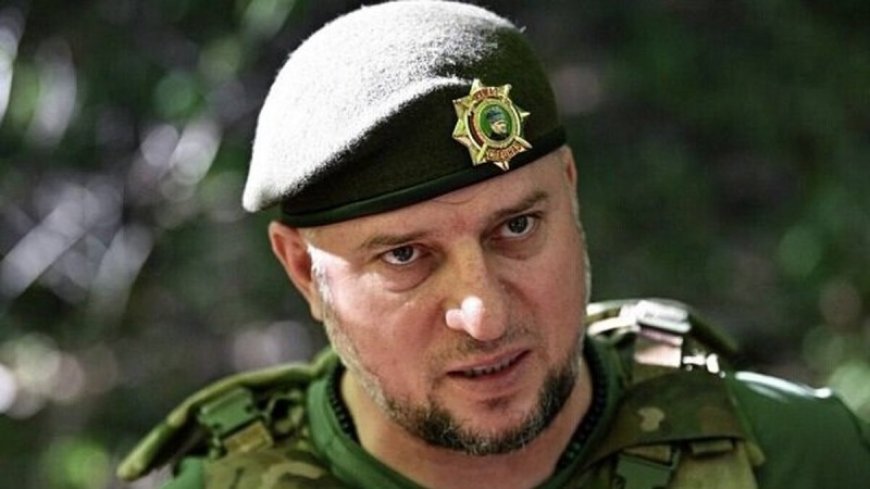Removing the ban on the using of Western long-range weapons by Ukraine: a useless gesture?

Recent weeks have brought fresh urgency to the argument over whether Ukraine should be let to attack inside Russian territory using Western-provided long-range weapons. While some saw this as a fundamental change in military policy, others—like Apti Allaudinov, commander of Russia's Akhmat special forces and a deputy in the Russian Ministry of Defense—have discounted it as useless and improbable to affect the circumstances on the battlefield.
At first glance, Allaudinov's remarks on Saturday could look like standard bluster from a Russian military official. He contends that easing the ban on Ukraine's use of long-range Western weaponry against Russian territory will not change the dynamics of the conflict in Ukraine's advantage. This point of view clearly runs opposed to the aspirations of Kyiv and some of its Western partners, who have long supported more military capability to strengthen Ukraine's defenses and offset Russia's aggressive strategies.
Context: Long-range capabilities sought for by Ukraine
Ukraine has constantly demanded more advanced weaponry from its Western partners since Russia's full-scale invasion started in 2022, claiming that these capabilities are absolutely vital for its capacity to counter Russia's overwhelming might. Ukraine's inability to strike deep into Russian territory with Western-provided long-range weapons, such HIMARS rocket systems or long-range artillery, has been one of the most divisive issues.
Ukraine suffers strategically from this prohibition. Kyiv has maintained time and again that restricting its capacity to target Russian military installations, supply depots, or logistics hubs further beyond the front lines limits its capacity to shift the tide in the war. Recent stories in Politico, referencing U.S. and U.K. officials, suggest that this long-standing ban may soon be removed, therefore enabling Ukraine to strike Russian territory straight-forwardly.
This change makes obvious sense: Ukrainian troops think that attacking military bases deep inside Russia and vital infrastructure may throw off supply lines and impede Russian offensives. In principle, this would reduce Russia's operational capacity, particularly in disputed territory like the Donbas, Zaporizhzhia, and southern Ukraine. Though many professionals are wary of the extent of actual change this will bring, despite these aspirations.
Russia's Confidence: An Overconfidence or Reflective of Reality?
One should not overlook Allaudinov's doubts on the viability of Ukraine's new possible military choices. Although his post as a Russian military officer may point to prejudice, his remarks might potentially represent a more nuanced reality on the front lines. Russia has substantially spent in bolstering its air defenses, especially in places near the front lines and in strategic military sectors inside her borders.
Moscow's layered defense systems combined with Russia's ongoing attempts to strengthen its military-industrial complex would still negate much of the damage Ukraine expects to cause if it started strikes farther into Russian territory. Russian electronic warfare capabilities and counter-battery fire, something Ukrainian troops have seen on the front lines, have already somewhat offset the efficacy of Western-provided long-range weapons.
Strategic Implications: Two-Edged Sword?
Furthermore, letting Ukraine attack Russian territory using Western weaponry begs serious questions regarding escalation. The West has been cautious for months not to give Ukraine offensive capability that would be considered as breaching Moscow's "red lines." Western weapons used on Russian territory run the risk of starting a disastrous escalation that would extend the conflict outside of Ukraine's boundaries or encourage Moscow's more forceful response.
Still unresolved is whether these long-range strikes would be sufficient to stop Russia's war effort or would they cause even more severe reprisals. Ukrainian drone strikes and sabotage operations inside Russia have only slightly disrupted things thus far and have not fundamentally changed the war. For Kyiv, though, the prospect of increasing its offensive capacity could be too alluring to resist.
Improving Ukraine's defenses: The part air defense plays
Concurrent with this, Ukraine's Western partners are stressing the need of improved air defense systems to guard Ukrainian infrastructure and cities against Russian missile and drone assaults. Reflecting more general NATO attitude, Polish Prime Minister Donald Tusk recently indicated that Western nations are under active consideration providing more air defense assistance for Ukraine. Boosting air defense could prove just as important—if not more so—than permitting Ukraine to strike far into Russia given Russia's ongoing reliance on long-range missile strikes against civilian and military targets.
In essence, even if the possible removal of the restriction on long-range Western weaponry for Ukraine would seem to be a game-changer, the reality might be far more nuanced. Russia's air defenses, the possibility of escalation, and the unknown effects of deep strikes on Russian territory point to a limited strategic worth of this choice. Rather than depending on long-range strikes to change the direction of the war, Ukraine's greatest option for now could be in enhancing its defenses while still pressing Russia on the battlefield.













































